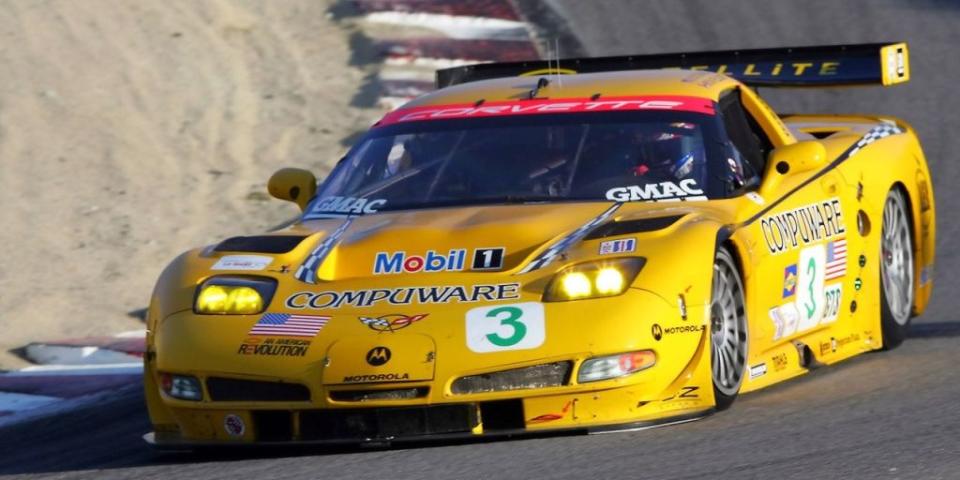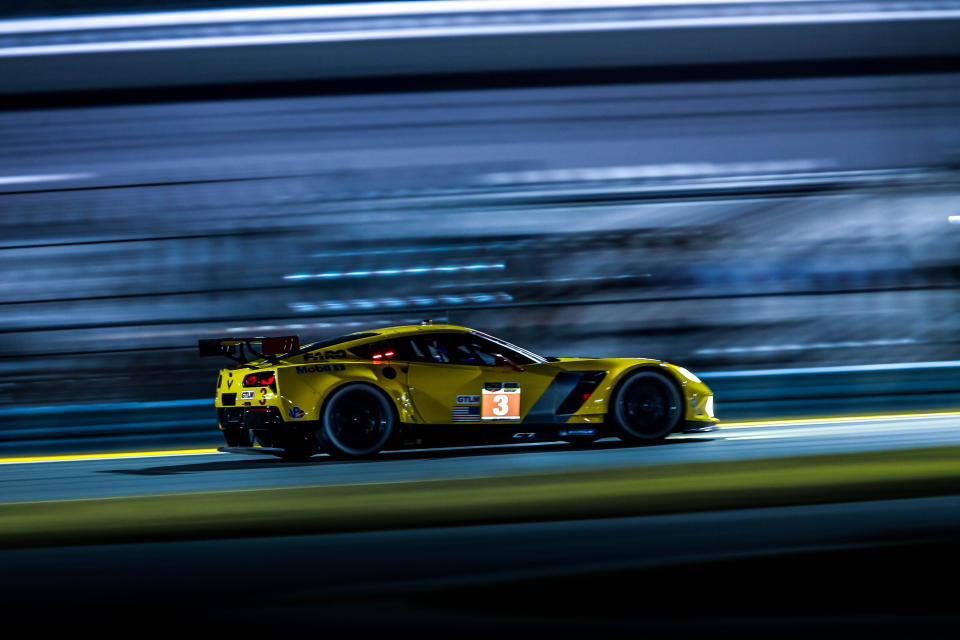America's Greatest Racing Team Celebrates 100 Wins

At any given racetrack, on any given Sunday, the Corvettes are the loudest.
Corvette Racing knows how to make an entrance: their cars are bright yellow, they wear a giant skull named "Jake," they blast a train horn for lunchtime. Their cars rumble with small-block gravitas, one portending doom and domination. Take No Prisoners, the boys from Corvette are fond of saying.
And the program is arguably the most successful factory racing team of the 21st century, possibly of all time. The highlight reel: eight class victories at Le Mans, ten wins at Sebring, three wins at Daytona-including an overall victory in 2001. Eighty-two wins in the American Le Mans series, the best of any team, enough to earn Corvettes ten manufacturer/team championships and nine driver titles. In 2015 it won the Triple Crown of motorsport: victories at the 24 Hours of Daytona, the 12 Hours of Sebring, the 24 Hours of Le Mans. Corvette Racing is a modern success story, buoyed by recognizability, results, and a corporate budget that just won't give up.
And since the team's first win at Texas Motor Speedway, during a 117-degree September day in 2000, Corvettes have racked up 100 wins. Its centennial victory happened just this past week at Lime Rock Park, with Oliver Gavin and Tommy Milner racking up a 1-2 finish. It was the Corvette's fifth victory there. It was the first team to rack up 100 wins in IMSA history.

General Motors got serious about international motorsports around the time the C5 Corvette debuted in 1997. It hired Pratt & Miller Engineering to transform the Corvette into a grand touring champion. Cofounder Gary Pratt is a soft-spoken man, humble like all your good ol' Midwestern stereotypes, according to a 2003 profile in Car And Driver. "GM came to us and said: 'We want to race this car,'" he said. "'You tell us where it'll be competitive. You test it. You prove to us-in private-that it can win. Do all that, and we'll make funds available to campaign it multiple years.' So we tested secretly all over the country, learned we were as fast as the Porsches but not the Vipers."
That was in 1997, Car and Driver noted. Four years later, the C5R Corvettes placed 1st and 4th overall at Daytona, then 1st and 2nd in the GTS class at Le Mans. The next year in France, they did the same thing.
The test mule that got the team there is still in Pratt & Miller's lobby. The man who got GM to knock on Pratt & Miller's door is still with the team: manager Doug Fehan, who was there at Lime Rock Park this past weekend.
"When no other manufacturer was interested in GT racing, Corvette stayed because they saw the value in it," he told Sportscar 365. "At that period of time, it opened some eyes. It opened eyes at Porsche, Ferrari, BMW, and at Aston Martin.
"They had to step back and say, 'Wait a minute, these guys are out there and they've got this whole market all to themselves.' This is the other edge of the sword. It wasn't like, 'Oh they're just racing themselves,' it was, 'They've got this whole market. We need a piece of that!'
"And then you watch it grow into what it is today. That was really the tipping point, going from no competition to where we are today because everybody realized what you could do when they saw us do it."
Two generations later, the current Corvette race car has to not only contend again Porsches, Ferraris, BMWs, and Aston Martins, but also Ford's new GT, which wears the unsubtle star-spangled colors of our American flag but lacks the consistency of America's winningest race team. Crew chief Dan Binks isn't worried. Or maybe he is. After all, he-and the rest of the Corvette Racing team-have got an enviable track record to uphold.


 Yahoo Autos
Yahoo Autos 